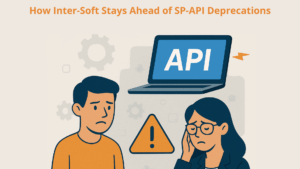How Much Does It Cost To Build A Shopify App in 2023?
Table of Contents
ToggleNavigating through the complexities of Shopify app development can be riddled with uncertainties. As you embark on this journey, it’s crucial to grasp the intricacies of the manufacturing process in order to create a robust and effective software solution.
Entrepreneurs, business owners, and developers who are curious about the cost of Shopify app development will find this detailed analysis invaluable.
In this blog, we will walk you through how the cost is calculated, the factors affecting it, and how to save resources in the process.

Crucial Factors Influencing Shopify App Development Cost
There are several factors that impact the cost of Shopify app development. One must be aware of the following.
- Complexity & Scope:
The cost escalates with the complexity and scope of the features needed for a Shopify app. A simple app with fewer features may require less time and cost, while a complex one with advanced features might need more development time and therefore cost more.
- Design Complexity:
The design of a Shopify app influences its usability, functionality, and overall user experience. Customizing the app design increases the development cost.
- Third-Party Integrations:
Shopify apps often require integration with other apps or systems like payment gateways, social media platforms, CRM tools, etc. The complexity of these integrations can affect the development cost.
- Third-Party API Costs:
Some Shopify apps require third-party APIs, which can add to the development cost.
- Hosting and Maintenance Cost:
After the Shopify app is developed and launched, there are ongoing costs associated with hosting and maintaining the app. These costs consist of server hosting, domain, maintenance & support costs.
General cost to build diferente types of Shopify apps?
This question is often at the forefront of one’s mind when venturing into Shopify app development.
The reality is that Shopify apps tend to be expensive, with costs varying significantly based on several factors. Basic apps typically range from 5,000€ to 15,000€, while more sophisticated apps can exceed 30,000€.
One must also take in consideration the type of app that its being developed, if it’s a public app, a private app or a custom app.
The cost for developing public apps typically falls between €5,000 and $10,000, and it is contingent on factors such as complexity and scope. These types of Shopify apps undergo a rigorous review process and are subsequently made available to the public via the Shopify store.
Conversely, private apps usually cost between 5,000€ and 25,000€, with the price dependent on the app’s complexity and degree of customization. Private apps are designed exclusively for a particular Shopify store, meaning they won’t appear in the Shopify App Store and can only be accessed by the store owner and their team.
Finally, custom apps range in cost from 15,000€ to 100,000€. Similar to private apps, custom apps are crafted specifically for an individual Shopify store. As such, they are not listed in the Shopify App Store and are solely accessible to the store owner and their team.

How to calculate Shopify apps development costs?
The cost to build a Shopify app depends on the complexity of the application and the total of hours required to build it.
- Hourly Rate:
The hourly rate for a development team can vary significantly based on the team’s location and individual expertise. A single developer might charge anywhere from 100€ to 200€ per hour, depending on the complexity of the project.
- Estimated Development Hours:
The time required to develop a basic Shopify app is typically between 100 and 200 hours, while a more complex app could necessitate 200-300 hours or even more.
- Extras:
Additional costs may include hosting, domain registration, SSL certificates, and more. These costs are generally not substantial in comparison to the overall development cost of the app.
Strategies to Reduce Development Cost
Several strategies can be adopted to minimize the cost of Shopify app development:
- Start with an MVP:
Create your Shopify app by focusing on essential features and gradually introduce new features based on user feedback and business needs.
- Use Pre-Built Solutions:
Pre-built apps and plugins can save a lot of development time and costs.
- Utilize Open-Source Tools:
Leverage free libraries, frameworks, and platforms to reduce development costs.
- Choose the Right Shopify App Development Company:
The company you hire can significantly impact the cost. Choose a company that offers excellent services at affordable costs.

In summary, the cost to create a Shopify app is contingent upon the specific features and tailor-made developments you desire. A basic Shopify app would start at around €5,000, while a more complex app, tailored to the client’s requirements, would be in the range of €15,000 to €20,000.
Taking these points into account before making a decision can be instrumental in effectively achieving your development goals.
Should you require further clarification regarding the cost of Shopify app development, or you would like to get a quote to get your own app developed, please don’t hesitate to reach out to us. We’re here to assist you.







